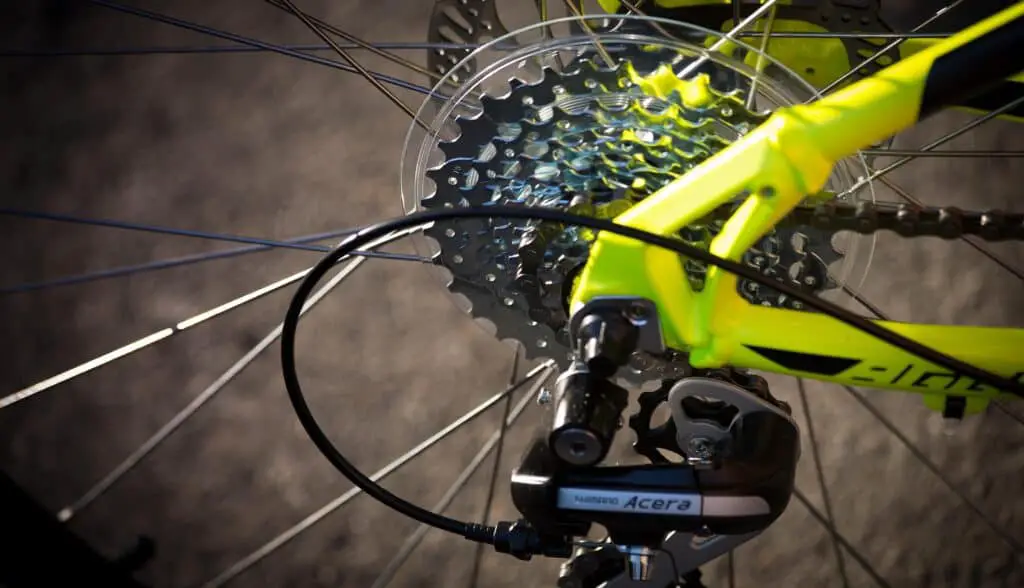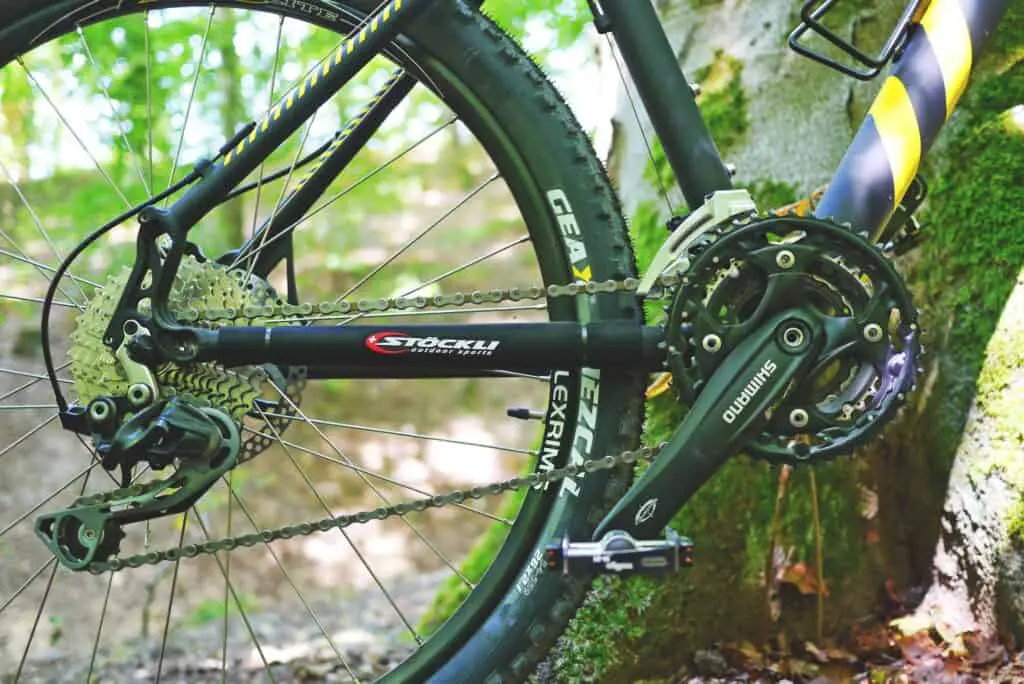Last Updated on October 30, 2023
Anything can happen when we are out on our mountain bikes on the trail. One of the most common things that we go through is when our wheel stops spinning, either entirely or just in part.
What are you going to do when that happens?
In this article, we will answer that question, and give you a better understanding of how rear wheels work. We’ll also provide you with some tips you can do to avoid this problem from happening again.
Hubs need servicing
One of the most common reasons why your bike’s wheel stops spinning is if your hubs need servicing.
Mountain bike hubs function like the engine of your bike because these allow your wheels to turn depending on the amount of effort and energy you exert in pedaling.
This happens because the pedals are connected to the bottom bracket, which, in turn, is also connected to the rear hubs. This means that the hubs are prone to constant usage. And through time, their components and parts might slowly break up due to continuous use.
This affects your wheel and can stop it entirely because the rear wheel is also directly attached to the rear hubs. However, regular hub servicing can prevent this problem from happening.
What happens when your rear hub is serviced is that they are regreased, and each of its components is inspected meticulously along with its hub bearings. These small components are then replaced if they have any signs of damage.
Derailled chain

A derailed chain will stop your wheel from turning because it will loop around your chainstay and mix up with your cogs and lower drivetrain. This usually happens when your shifting drivetrain is not synced correctly and tuned.
There are also times when you repeatedly or forcefully push on your shifters while riding at high speeds, and the chain suddenly derails. These are normal, though, but these can be easily fixed.
All you have to do is turn your bike upside-down with the grapes and saddle on the ground. Then, use your hand to manually put the derailed chain back around the chainring and on its specific cog based on your current gear.
You also should ensure that you tune your bike’s drivetrain properly at your local bike shop so that you won’t have a hard time fixing a derailed chain again.
Damaged cassette
A damaged cassette is another reason your rear stock wheels might stop spinning. The chain is the one that propels your bike to move forward by turning the individual cogs of the cassette based on your current gearing.
A damaged cassette, however, can cause your chain to get derailed. This can come in the form of a broken tooth, circled edges, or maybe even bent sidings.
Replace your cassette if this is the case with your cancel menu rear wheel to prevent it from further damaging your mountain bike’s other parts, especially its rear axle, brake caliper, seal drag, hub shell, hub body, and freehub body.
Seized bottom bracket
A seized bottom bracket is another potential reason why your rear wheels might not be spinning freely. Bottom brackets also have a lifespan. And they can break down if you use them too often or if the time has finally come for them to be replaced entirely.
Seized bottom brackets have internal components that have already rusted or received enough damage to stop functioning correctly.
Have your bottom bracket immediately replaced if this is the case, as prolonged use can lead to other parts being damaged, especially your front wheel, loose bearings, and cartridge bearings.
Brake pads rubbing
There are instances when your mountain bike’s brake pads rub with the caliber. This usually happens because of an improperly installed brake set or if you had a strong crash when you’re riding out on the trails.
Fixing this is easy, though, because you just need to untighten the bolts of the brake pad. Then reposition the brake pads back to their proper place. Tighten them using the bolts, then slowly pull on your brake levers.
Bent brake rotors
Brake rotors are made of steel and these are located at the bottom-most part of your bike along the sides of your wheels. This makes them very prone to hitting whatever the trails may have. Examples are rocks, sand, boulders, or even huge roots.
They are also prone to crashing because they’re on the sides of your wheels. This is why there is a very high chance that they will get damaged.
And one of the most common damages these rotors have is being bent. If they’re bent, their sides will rub directly into the brake calipers, which are attached to the sides of the wheels. Every wheel rotation then means that the brake rotors rub against the calipers.
This then slows down the natural spinning of the wheels. In worst cases, this fully stops the wheel from turning.
You can fix this by straightening your rotors using a rotor truing tool. In most cases, these fix the problem. But if the rotors are bent too much, you might just as well buy a new one.
Conclusion

Mountain biking is a sport full of surprises because anything can happen to you, especially if you are exposed to Mother Nature in its rawest form.
And one of the most common things is when your rear wheel stops spinning. If that happens, you need to know the root cause of the problem for your wheels to spin freely on your next bike ride.
We have outlined some of the most common reasons. Then, just simply follow our tips and bring out your inner creativity in implementing the process. Doing so will surely make you a better mountain biker on a better mountain bike.
